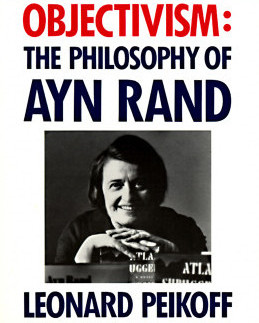By Richard M. Salsman
Dr. Peikoff’s monumental work lays the necessary groundwork for a complete rehabilitation of the science of economics. Of course, every science needs a rational philosophy at its base, specifically an objective theory of concepts. But economics today sorely needs that base. For it’s a science in slow-motion collapse, bifurcated between the “theoreticians” and the “empiricists,” each unable to discover genuine truths about economic activity or economic policy.
The theorists weave a web of patently unreal theories — such as “pure and perfect competition” and “market failure” — derived from admittedly arbitrary assumptions. Meanwhile the empiricists are mired in the impenetrable complexity of concrete-bound events, unable to make conceptual sense out of markets. Thus, one group creates nonsense theories about a pseudo-reality while the other can make no sense of the reality standing before them. The more “modern” economists now doubt whether rational behavior can ever prevail in markets – a reflection of their own mental chaos, not of the businessmen they purport to be studying.
Modern economics, taking its cue from modern philosophy (which upholds the alleged “nobility” of self-sacrifice) is also deeply suspicious of the ethic of self-interest, hence of the profit motive that obviously inspires all business creators. Some economists admit that this motive exists but presume it fosters unethical acts. Others deny that it’s a motive and yearn for an alternative.
No wonder economists today are widely ridiculed for their inability to analyze markets coherently, forecast accurately, or give policy advice objectively.
Dr. Peikoff’s profound book provides a solution to the dilemmas faced by modern economics, blazing a trail along which rational economists may now walk. His book can ensure that economic analysis and policy will be guided by reason and a respect for rational self-interest, thereby enhancing material prosperity.
First, Dr. Peikoff rejects any breach between reason and facts and defends the objectivity of concept formation. In so doing he defines and validates the basic principles of a rational science of economics (in the chapter “Capitalism”).
Second, he defends rational self-interest as the only ethic proper to man and the only one consistent with mutual cooperation. In so doing he explains, among other issues: the role of reason in creating wealth, the objectivity of prices, the source and justification of profits, the nature of competition, the role of gold-based money and free banking, the benefits of unrestricted free trade and the case for unadulterated, laissez-faire capitalism.
Finally, he demonstrates why a rational economist must be a pro-capitalist economist. If economics ever regains the respect and attention it once received when the Classical Economists wrote, Dr. Peikoff’s book will be responsible for it.
Richard M. Salsman is President of InterMarket Forecasting, Inc., an investment research and forecasting firm based in Boston.
